The talent shortage, on the one hand, leads to increased pressure on employees while, on the other hand, it provides them with more freedom in job selection and contract negotiations. Companies, in turn, are faced with the challenge of not only attracting talented employees but also creating a diverse and inclusive work environment to retain them. The key to this lies in the company culture.
For many, the ideal cultural fit, where the company’s values align with those of the employees, has become more important than a higher salary. In fact, 65 percent of respondents in a Glassdoor survey cited culture as one of the main reasons for staying in their company. Therefore, it is not surprising that 77 percent of respondents intensely examine the company culture of potential employers during the application process. Hence, it is crucial for the values to become ingrained in the compan’’s DNA and to be reflected in both the first impression and the hiring process, as well as in the daily work environment.
Company Catfishing
Many employers have ambitious DE&I policies, committing to promoting diversity, equality, and inclusion in their companies. However, when this promise does not align with reality, it’s referred to as Company Catfishing. In a study, our client Greenhouse, a partner for sustainable and fair recruiting, identified discriminatory questions in interviews as one of the main areas where appearance and reality differ. This includes questions about age (35 percent), gender (28 percent), relationship status (28 percent), family planning (18 percent), ethnic origin (30 percent), and religious orientation (20 percent) of applicants.
Structural Hiring
A structured hiring process that systematically eliminates potential biases and inequalities can counteract this issue. Tools such as the hiring software developed by Greenhouse support HR professionals in conducting interviews as objectively as possible and making fair decisions. In the application process, even experienced recruiters may inadvertently ask questions that focus less on the required qualifications and more on unconscious biases. Through job profiles, rating cards, and interview guides, Greenhouse enables a focus on the essentials: the applicant’s professional suitability for the position and their personal alignment with the company’s values.
Diversity & Inclusion
However, DE&I does not end with the signed employment contract – on the contrary. Instead, ongoing efforts are needed to create an attractive work environment to retain talented employees in the team. Figures on the growing turnover in the job market underscore this: In the EY Work Reimagines Survey 2022, 38 percent of respondents stated that they intend to change jobs in the next year. The dramatic increase from the previous year’s figure of 6 percent is partly explained by the post-pandemic period: Employees are less focused on security after the pandemic and simultaneously have changed expectations. Remote work and flexible hours are no longer a luxury in many industries but rather a necessity. Employers should not see this as a limitation but as an opportunity. After all, this significantly expands their target audience – both regionally and in terms of part-time workers and individuals with special physical, mental, and social needs.

© Adobe Stock
At PIABO, we experience the benefits of remote work firsthand: Customer teams can collaborate regardless of location based on expertise, freelancers are seamlessly integrated, and thanks to workations, remote work, and part-time options, other commitments and the balance with daily life are not neglected.
Pay Transparency
In addition to diversity and inclusion, employers should not neglect the third pillar of DE&I: equality. One step toward this could be the introduction of a transparent salary structure. By disclosing salaries, the risk of discrimination is reduced, and trust in the fairness of the compensation system is strengthened. Moreover, many employees feel more appreciated when they know that their salary is based on verifiable criteria. This can not only promote employee retention but also serve as additional motivation to further their professional development and contribute to the company’s success


